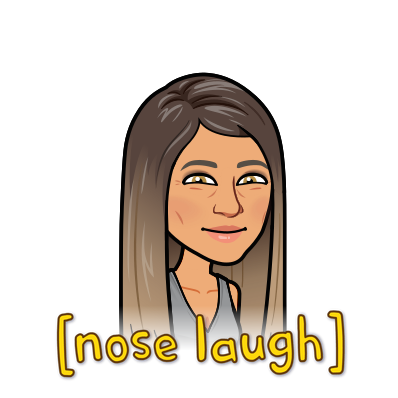Ever since I’ve graduated on September 2022, I’ve not had a job. Maybe a crappy internship, but I wasn’t provided with a ‘certificate’, or letter that proves if I’ve worked for them. That was around October 2022, and I quit voluntarily at the end of January 2023. Since then, I’ve not worked anywhere as a software dev, be it internship or full-time, because the job market is so fucked up in India.
Now, how do I explain this to avail scholarship? I have yet to read other scholarship docs from other countries in Europe, and I’m already shitting solidified blood-clots reading this from the DAAD Helmut-Schmidt announcement document:
a curriculum vitae in reverse chronological order including the date of issue (format: europass, please note: the europass template does not include a date, please add it yourself) with exact information about your studies and practical experience; gaps of three months or more must be explained
(Update: And I just realized that I am an idiot for not reading that this is only for non-STEM folks. Well, it looks to me that DAAD for STEM is also almost the same, with more stringent requirements.)
In my college, there was no research programs - I mean, you know the typical ‘Indian colleges encouraging academic plagiarism’, so I didn’t learn or do shit. And obviously, I have no job experience. I did contribute to open-source from GitLab, a few Ruby gems, a new unknown front-end framework for JS, then Nixpkgs and now Guix, but that’s it. Honestly, I wouldn’t even call it contribution, because only a few patches were merged - most of it was just me interacting with those folks. After that, I’ve done nothing since September 2023, because my laptop broke and there were no spare parts. Maybe a little bit of playing around with Nix and Guix, writing package expressions and that’s it.
How do I explain this? CVs are supposed to be at least 2-3 pages, but this? I can’t even write half a page with this.
I worried about this a lot back after uni, too.
I studied 8 years for a diploma that was supposed to be done in 5, and I had done nothing with the extra time. I just wasn’t in a good place to be done any faster.
However, it turns out to just not be a problem. Companies generally could not give a flying fuck about what I did at university, and as soon as I had been at one company, they only cared what I had done before in the industry.
Now of course, going for a masters is different, but I wouldn’t worry too much about it, it probably matters less than you think it will. If you want to explain gaps, I’d just cite it as “personal reasons”. If they ask - which is kinda not-okay - you can always say you had family matters that precluded you from focusing on your studies until now.
Just say you signed an NDA and can talk about it in 20 years. Yes, that is dishonest in some sense and I hate it, but then again you owe these companies nothing and they are not family.
I’m not legally allowed to tell you what I did without lying to you
This is the way. And it is waaaay better than “I could tell you… but then I would have to kill you”
CVs are supposed to be at least 2-3 pages
Where is it the case ? I always heard CV are expected to be kept short, and stay on one page unless you’re one of these senior experts with a crazy experience. A young graduate sending a 2-3 page CV sounds at minimum pretentious and would go direct to the garbage.
Now, it seems that “Not being able to find a job” is a great reason to pursue further education.
College CV’s are different and are meant to go more into detail regarding specific accomplishments.
Cv vs resume. Different.
Not outside of the US
I’m in Australia
Obviously not discounting your experience but most things I can find online indicate that CV and resume are synonymous in Oz.
K. They’re not but I can’t account for what you’ve read online
These are the first two results I found for “Australia CV”:
https://www.visualcv.com/international/australia-cv/
Australia CV Terminology: The terms ‘resume’ and ‘CV’ are used synonymously in Australia - they refer to the same document. The word ‘resume’ is used more commonly, however, so if in doubt, use that one.
https://www.resumestoimpress.com.au/career-resources/how-to-prepare-an-australian-cv/ - this seems to imply a “true” CV for specific acadaemia purposes as well but also implies this is not what most people mean
Is it ‘CV’ or ‘Resume’ in Australia? A CV, short for Curriculum Vitae, is a detailed document outlining an individual’s educational background, work experience, skills, achievements, and other relevant information. In Australia, the term ‘CV’ is often used interchangeably with the term ‘resume’. In this article, we’ll discuss it in that context. However, there are some industries in Australia where a true ‘CV’ is required, such as academic positions at universities. True ‘CVs’ are expected to be longer and include more detailed information about a candidate’s experience
So see your last reference.
Over 20 years I’ve worked in the federal and local governments, for academia adjacent organisations, NGOs and commercial companies, retail and hospitality, health services - as both a hopeful candidate and a hiring manager.
Different industries require different things and the distinction between the 2 is relevant. It’s the white collar roles that expect CVs or will actually make that distinction in the job advertisement. In retail etc they might ask for your cv but they mean a resume. More commercial companies I’ve worked with just want a resume and they mean a resume. If I submitted a resume for one of my most recent gigs, they’d say that’s not enough and ask me for my long form cv.
There is a distinction, it just depends on the industry.
I was taught that resume’s are experience-focused and cv’s are education-focused. Obviously there’s a lot of overlap but the latter is used more in academia, and by recent graduates with little work experience.
If that’s the case you should update Wiktionary which currently claims that they’re synonyms: https://en.wiktionary.org/wiki/resume#Noun
Um, ok…?
YOU’RE A SYNONYM!
To validate your perspective: I am a hiring manager in tech in the US. I will greatly discount any resume over 2 pages (especially for a higher level candidate). For entry level candidates, one page is sufficient for me. I’m also less concerned about gaps in resumes and more concerned with ability to learn - so I look for things that demonstrate that.
Agree - I’m mid 40s with both deep and broad experience, US based so no picture or irrelevant biographical bits, and I still absolutely cringe at the idea of sending out 2-3 page resume/CV.
Could I reasonably fill that space with relevant and compelling information? Sure.
Do I think anyone would read it? Not a chance.
In my experience a Resume is a one page. A CV is 2-3.
CV’s are expected to be wall-of-text and as long as you can make it. They can easily go for 6+ pages. You are probably thinking about resumes
“the job market is so fucked up so but I’ve done a lot of open source work, here’s my Github”
How do you explain it? You tell them the truth. If that truth isn’t good enough for admission, you ask them what you need to have in your recent history to get accepted, and then when they tell you, you go do that thing.
If their admissions aren’t satisfied by whatever the truth is about your situation, then the program wouldn’t be a good fit for you anyway.
Mention any projects, programmes, self-learning you’ve participated in (inflate the importance of these somewhat) to at least break it up. Now, assuming that you’ve broken up the big gap into smaller gaps, write a simple and straightforward explanation about your situation at the end talking about all the gaps in general. Just write what you wrote here about the job market but more professionally. Don’t overthink it, some random professor will most likely spend 2-3 minutes looking at it. If you’re applying to some mid uni (I mean any uni that isn’t a cutthroat uni in the US or UK) and your bachelor’s GPA was like 3.2ish+ then you’ll be fine. You’ll just be in the middle of the batch, and depending on how many students applied that semester you’ll have an alright chance at the least.
NDA
That’s not how employment NDAs work. They never forbid a candidate from disclosing that they worked for a company and the general nature of their work. They just forbid the candidate from talking about specific knowledge gained at the company.
Do not use this excuse because it’s an instant red flag for anyone who knows even a little about the hiring process.
Ok how about ’ I was in Langley West Virginia working for the company and I can say nothing more’
I’m sure that the admission staff will take your application very seriously if you claim you were James Bonding it up for a few years.










